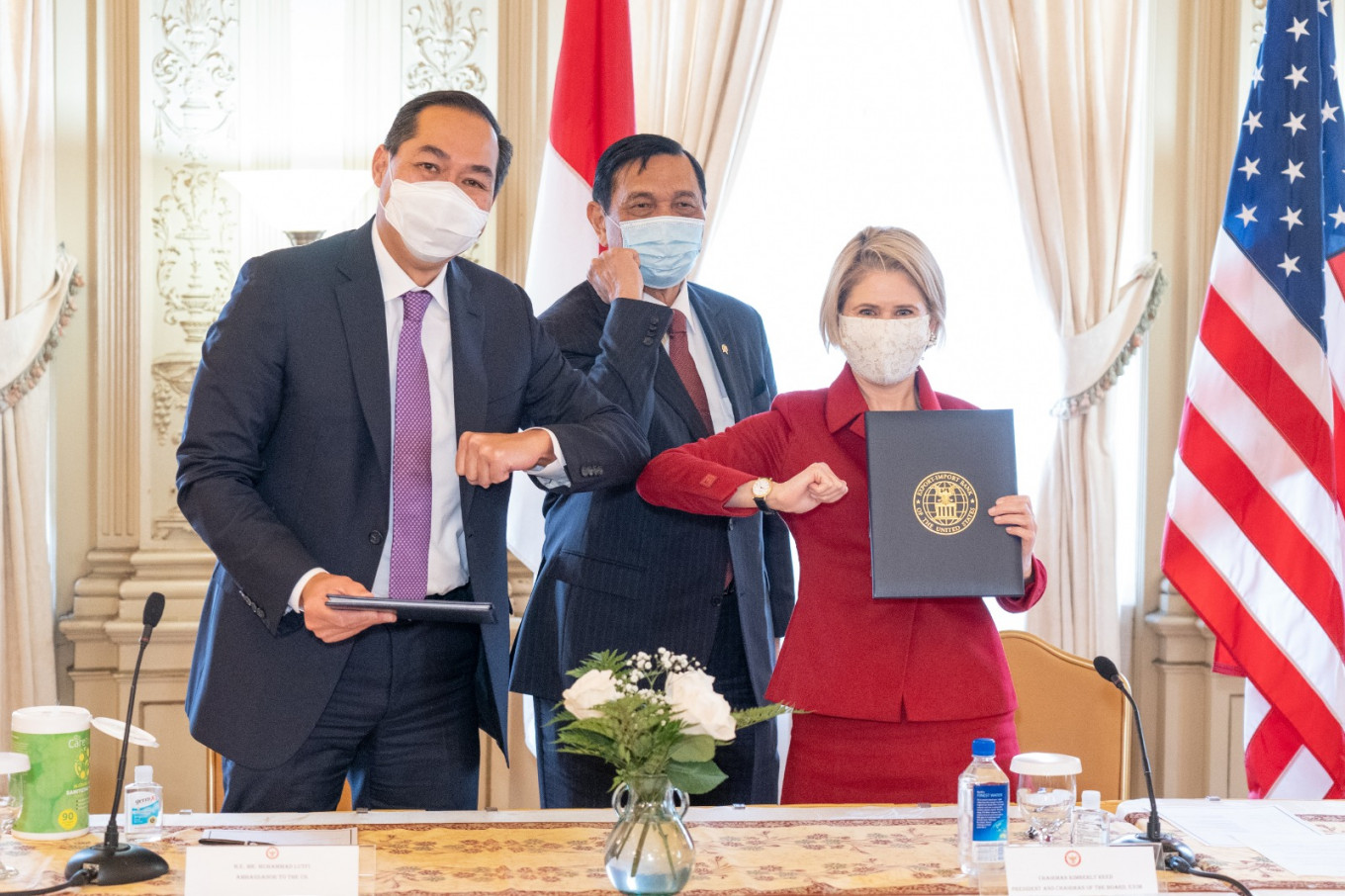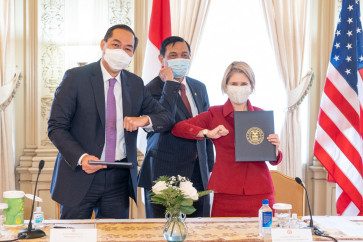Popular Reads
Top Results
Can't find what you're looking for?
View all search resultsPopular Reads
Top Results
Can't find what you're looking for?
View all search results[ANALYSIS] Biden presidency: Catching signs for deepening Indonesia-US trade ties
Almost a week to the day since Joe Biden was inaugurated as the US president, Indonesia should take a look at the opportunities that may be coming its way under the new administration, and what it can do to run with them.
Change text size
Gift Premium Articles
to Anyone
 Indonesian Ambassador to the US Muhammad Lutfi (left), Coordinating Maritime Affairs and Investment Minister Luhut Binsar Pandjaitan (center) and US Export-Import Bank president Kimberly Reed share a three-way elbow bump on Nov. 18, 2020 at a memorandum of understanding (MoU) signing event in Washington, DC. (Embassy of Republic Indonesia in Washington DC/epost-robot)
Indonesian Ambassador to the US Muhammad Lutfi (left), Coordinating Maritime Affairs and Investment Minister Luhut Binsar Pandjaitan (center) and US Export-Import Bank president Kimberly Reed share a three-way elbow bump on Nov. 18, 2020 at a memorandum of understanding (MoU) signing event in Washington, DC. (Embassy of Republic Indonesia in Washington DC/epost-robot)
T
he United States and China are the world's two largest economies. When the two countries became embroiled in a trade war, the flow of international trade slowed down. Whether the trade war will continue remains an interesting question, as the US is now under the new administration of President Joe Biden.
We argue that the US-China trade war is very likely to continue, but in a different way. Biden stated in his inauguration speech that vaccinations, fiscal stimulus and more positive trade politics, not a trade war, will improve the condition of the global financial market and the global economy. As we know, President Biden has inherited a highly tense relationship with China from his predecessor, former president Donald Trump.
We believe that Biden will take a more diplomatic approach to China in bilateral trade and investment. His approach may use diplomatic pressure to urge China to comply with the international standards on fair trade practices, labor protection and intellectual property rights. As we know, these are key US issues for protecting national economic interests and have been applied for decades, particularly under the Bill Clinton presidency.
More specifically, we find that the US strategy for China is to inspect unfair subsidies on Chinese exports to protect its domestic producers. Another strategy is to retain onshore manufacturing of high-value and critical supplies such as medical equipment, 5G telecommunications hardware and electric vehicles.
Although the US-China trade war is unlikely to end quickly, we can still expect the volume of international trade to increase gradually and the global economy to recover steadily with the start of COVID-19 vaccination programs.
According to data from the World Trade Organization (WTO), the volume of world merchandise trade in the first three quarters of 2020 fell 8.2 percent year-on-year (yoy) compared to 2019. Additionally, the WTO forecast that world merchandise trade would see a 9.2 percent overall decline in 2020.
Trade performance has been divergent during the COVID-19 business cycle, as lockdowns and travel restrictions imposed significant supply-side constraints on national economies while reducing output and generating high unemployment.

















